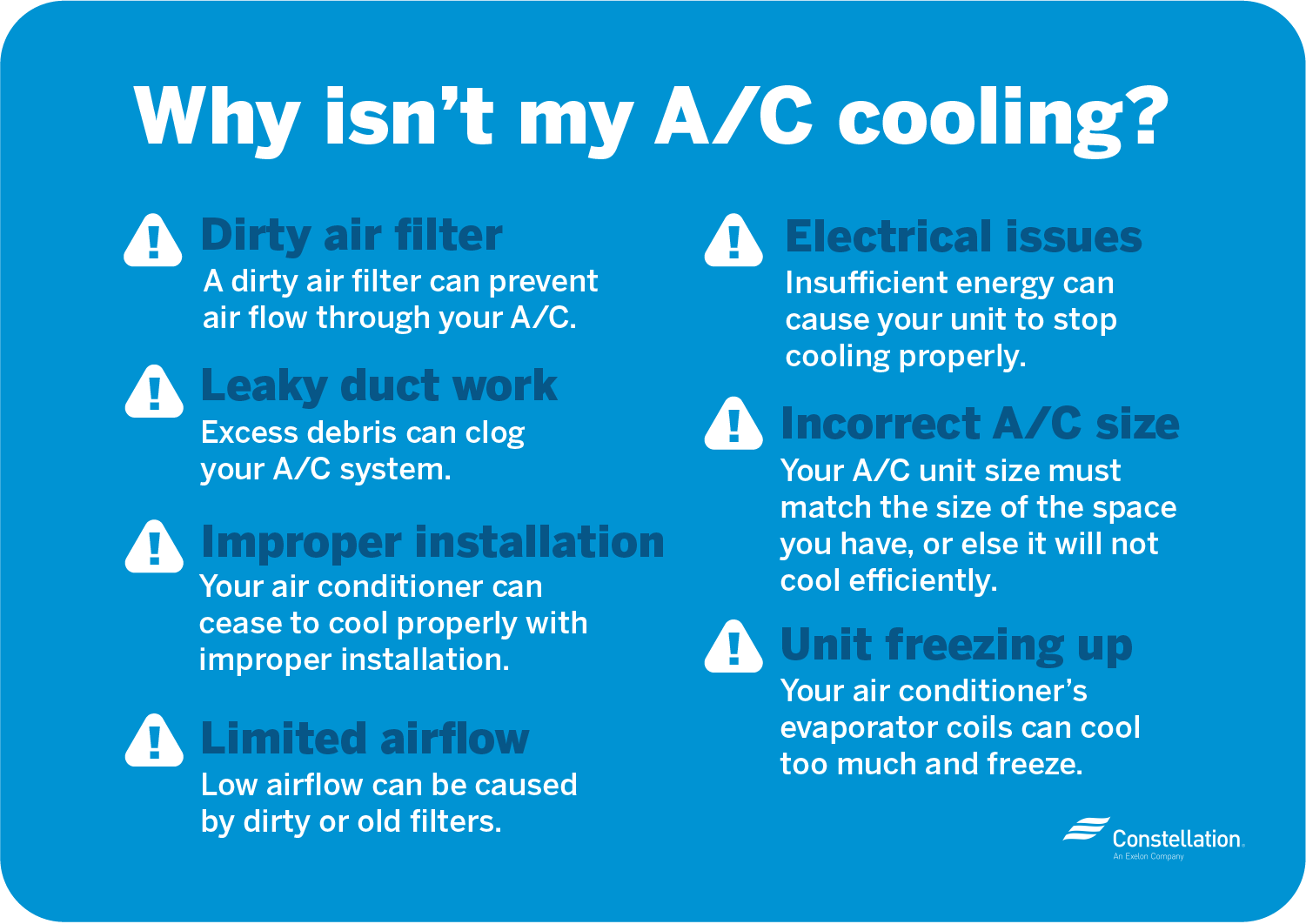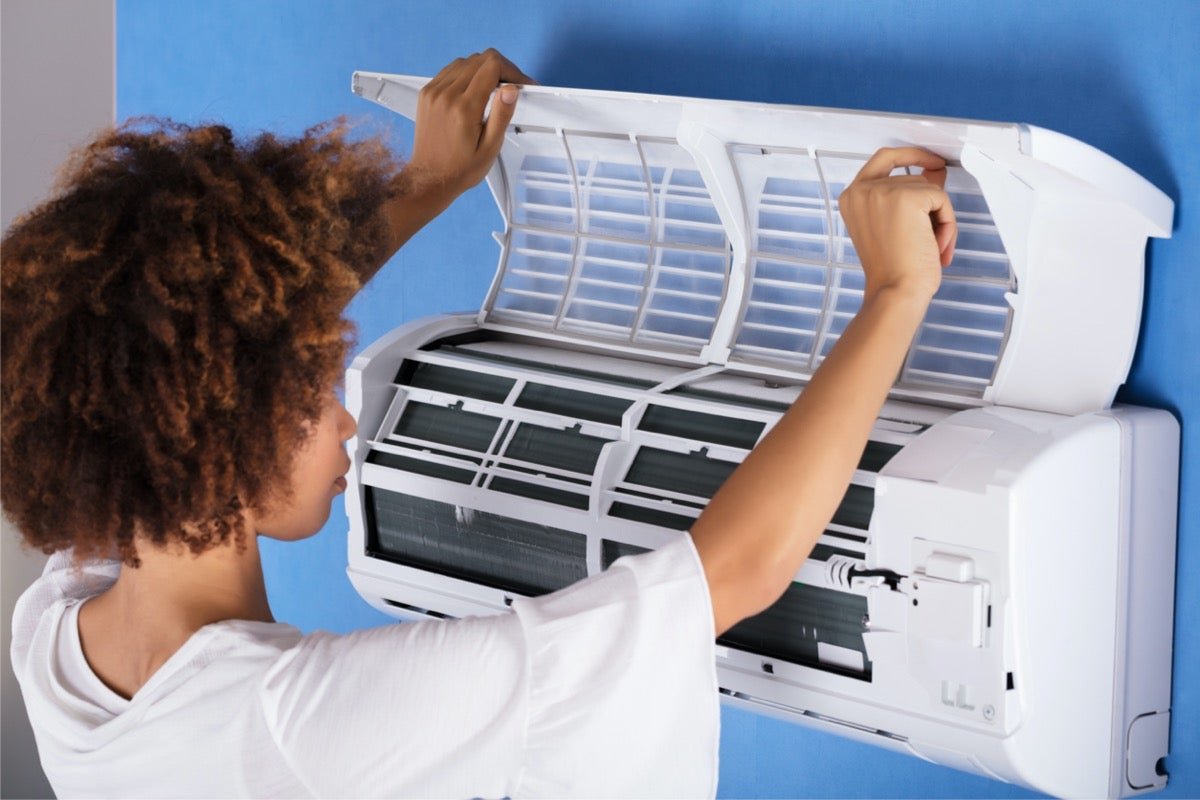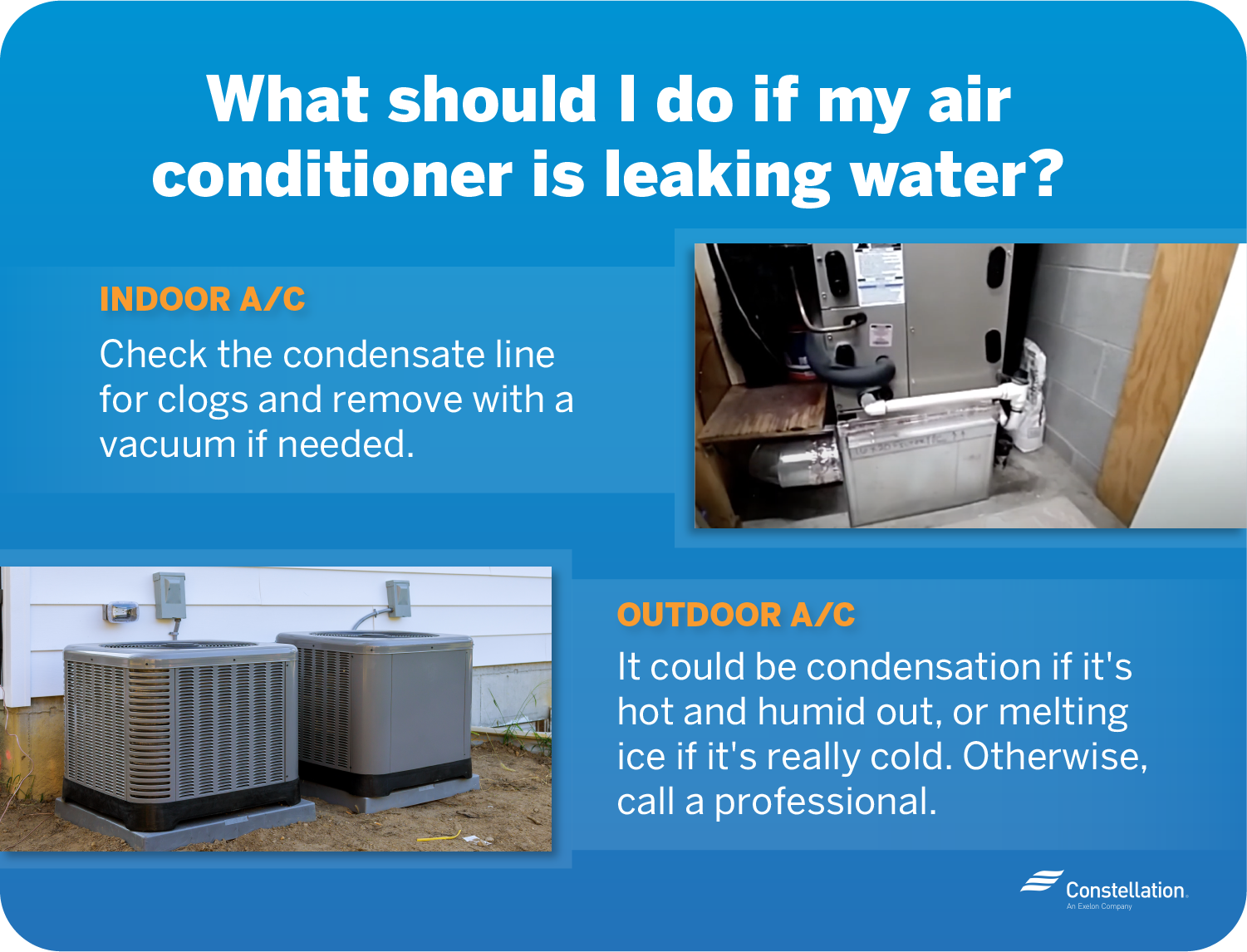Why Is My House Not Cooling Down With Ac

Why Is My House Not Cooling Down With AC? - Common Questions Answered
It's frustrating when your air conditioner seems to be running constantly, but your house remains stubbornly warm. This article addresses common questions and troubleshooting steps to help you understand why your AC might not be cooling effectively.
Q1: Is my thermostat set correctly?
This may sound obvious, but it’s often the first place to check! Make sure your thermostat is set to COOL mode and the desired temperature is lower than the current room temperature. Even a slight error can prevent your AC from kicking in or running efficiently.
- Check the mode: Ensure it's on "Cool" and not "Heat," "Fan Only," or "Auto."
- Set the temperature: The target temperature should be noticeably lower than the current room temperature. Try setting it 5-10 degrees lower.
- Programmable thermostats: If you have a programmable thermostat, review the schedule. It might be set to a higher temperature during certain times of the day. Make sure the programming aligns with your cooling needs.
- Battery Check: If your thermostat is battery-powered, ensure the batteries are fresh. A low battery can cause inaccurate readings or malfunctions.
Q2: Are my air filters clean?
A dirty air filter is one of the most common culprits behind poor AC performance. A clogged filter restricts airflow, forcing your AC unit to work harder and less efficiently. This can lead to overheating, reduced cooling capacity, and even compressor failure. Aim to replace your air filters every 1-3 months, or more frequently if you have pets or allergies.
- Location: Air filters are typically located in the return air vent or inside the air handler unit.
- Inspection: Hold the filter up to the light. If you can’t see much light coming through, it’s time to replace it.
- Replacement: Purchase the correct size and type of filter for your unit. The filter size is usually printed on the side of the filter frame.
- Frequency: A good rule of thumb is to check the filter monthly and replace it as needed.
- Benefits of clean filters: Improved air quality, better AC performance, and longer lifespan for your AC unit.
Q3: Are my outside AC unit and vents blocked or dirty?
The outdoor AC unit (condenser) needs proper airflow to release heat. Obstructions around the unit can significantly reduce its efficiency. Similarly, blocked or closed vents inside your house can restrict airflow and prevent proper cooling.
Outdoor Unit (Condenser):
- Clearance: Ensure there is at least 2-3 feet of clearance around the unit. Remove any plants, shrubs, leaves, or debris that may be blocking airflow.
- Cleaning: Use a garden hose to gently rinse the outside of the unit. Avoid using a pressure washer, as it can damage the fins. Direct the water from the inside out to remove any dirt or debris lodged within the fins.
- Damaged Fins: Carefully straighten any bent fins with a fin comb (available at most hardware stores). Bent fins restrict airflow and reduce efficiency.
Indoor Vents:
- Open all vents: Make sure all supply vents (those blowing air) are fully open. Closing vents in unused rooms can disrupt airflow and strain your system. While it might seem like a good way to save energy, it can actually make your AC work harder and less efficiently.
- Check for obstructions: Ensure furniture, rugs, or curtains are not blocking vents.
- Return air vents: Verify that your return air vents are not blocked by furniture or debris. These vents draw air into the system, and obstructions can reduce airflow and affect cooling performance.
Q4: Could I have a refrigerant leak?
Refrigerant is the lifeblood of your AC system. It absorbs heat from inside your home and releases it outside. If you have a refrigerant leak, your AC will struggle to cool effectively, and you may notice the following:
- Weak airflow: The air coming from your vents may feel weak or lukewarm.
- Longer cooling cycles: Your AC may run for extended periods without reaching the desired temperature.
- Ice buildup: You may see ice forming on the refrigerant lines or the evaporator coil (located inside the air handler).
- Hissing or bubbling sounds: You might hear a hissing or bubbling sound coming from the AC unit or refrigerant lines.
- Higher energy bills: Your energy bills may be higher than usual.
Refrigerant leaks require professional attention. Do not attempt to fix a refrigerant leak yourself. Contact a qualified HVAC technician to diagnose and repair the leak and recharge the refrigerant.
Q5: Is my AC unit the right size for my home?
An AC unit that is too small won't be able to effectively cool your entire home, especially during peak summer months. Conversely, an AC unit that is too large will cycle on and off frequently, which can lead to uneven cooling, higher energy bills, and increased wear and tear on the unit.
- Square footage: A rough estimate is that you need approximately 20 BTU (British Thermal Units) of cooling power per square foot of living space. However, this is just a general guideline.
- Factors affecting size: Other factors that affect the required AC size include the climate, the number of windows, the insulation level, and the number of occupants.
- Professional assessment: The best way to determine the correct AC size for your home is to have a qualified HVAC technician perform a load calculation. This involves assessing all the factors that contribute to heat gain and heat loss in your home.
- Symptoms of an undersized unit: AC runs constantly, difficulty maintaining desired temperature, uneven cooling.
- Symptoms of an oversized unit: Short cycling (frequent on/off), humidity issues, higher energy bills.
Q6: Are my ducts leaking air?
Leaky ducts can waste a significant amount of energy, as conditioned air escapes before it reaches the intended rooms. This can result in uneven cooling, higher energy bills, and a strain on your AC system.
- Common leak locations: Ducts are often located in attics, crawl spaces, and behind walls, where they are susceptible to leaks. Common leak locations include joints, seams, and connections.
- Signs of leaky ducts:
- Uneven cooling in different rooms.
- Dusty rooms, even after cleaning.
- Higher energy bills than usual.
- Drafts near walls or ceilings.
- Increased allergy symptoms.
- DIY inspection: You can visually inspect exposed ducts for obvious leaks. Look for gaps, cracks, or disconnected sections. You can also use incense or a smoke pencil to detect air leaks around duct connections.
- Professional duct sealing: For thorough duct sealing, it's best to hire a qualified HVAC technician. They can use specialized equipment, such as duct mastic or tape, to seal leaks effectively. In some cases, they may recommend duct replacement if the ducts are severely damaged or outdated.
- Benefits of duct sealing: Improved energy efficiency, reduced energy bills, more consistent cooling, improved air quality.
Q7: When should I call an HVAC technician?
While some AC problems can be resolved with simple troubleshooting steps, others require professional expertise. It's time to call an HVAC technician if:
- You suspect a refrigerant leak: Refrigerant leaks require specialized equipment and training to repair safely and effectively.
- Your AC unit is making unusual noises: Loud banging, grinding, or hissing noises can indicate serious mechanical problems.
- Your AC unit is not turning on: If you've checked the thermostat and circuit breaker and the unit still won't turn on, there may be an electrical issue or a problem with the compressor.
- You're experiencing frequent breakdowns: If your AC unit is constantly breaking down, it may be a sign of a more serious underlying problem or that the unit is nearing the end of its lifespan.
- You're uncomfortable troubleshooting electrical components: Working with electrical components can be dangerous. If you're not comfortable with electrical work, it's best to leave it to a professional.
- After trying the above steps, your AC is still not cooling properly: If you've tried all the troubleshooting steps outlined in this article and your AC is still not cooling effectively, it's time to call an HVAC technician for a diagnosis and repair.
- Your unit is old: Older units are inherently less efficient. Replacing it could result in a considerable savings to you over time.
By addressing these common issues, you can often improve your AC's performance and ensure a comfortable home environment. However, remember that complex AC problems require professional diagnosis and repair. Don't hesitate to contact a qualified HVAC technician if you're unsure about any aspect of your AC system.










